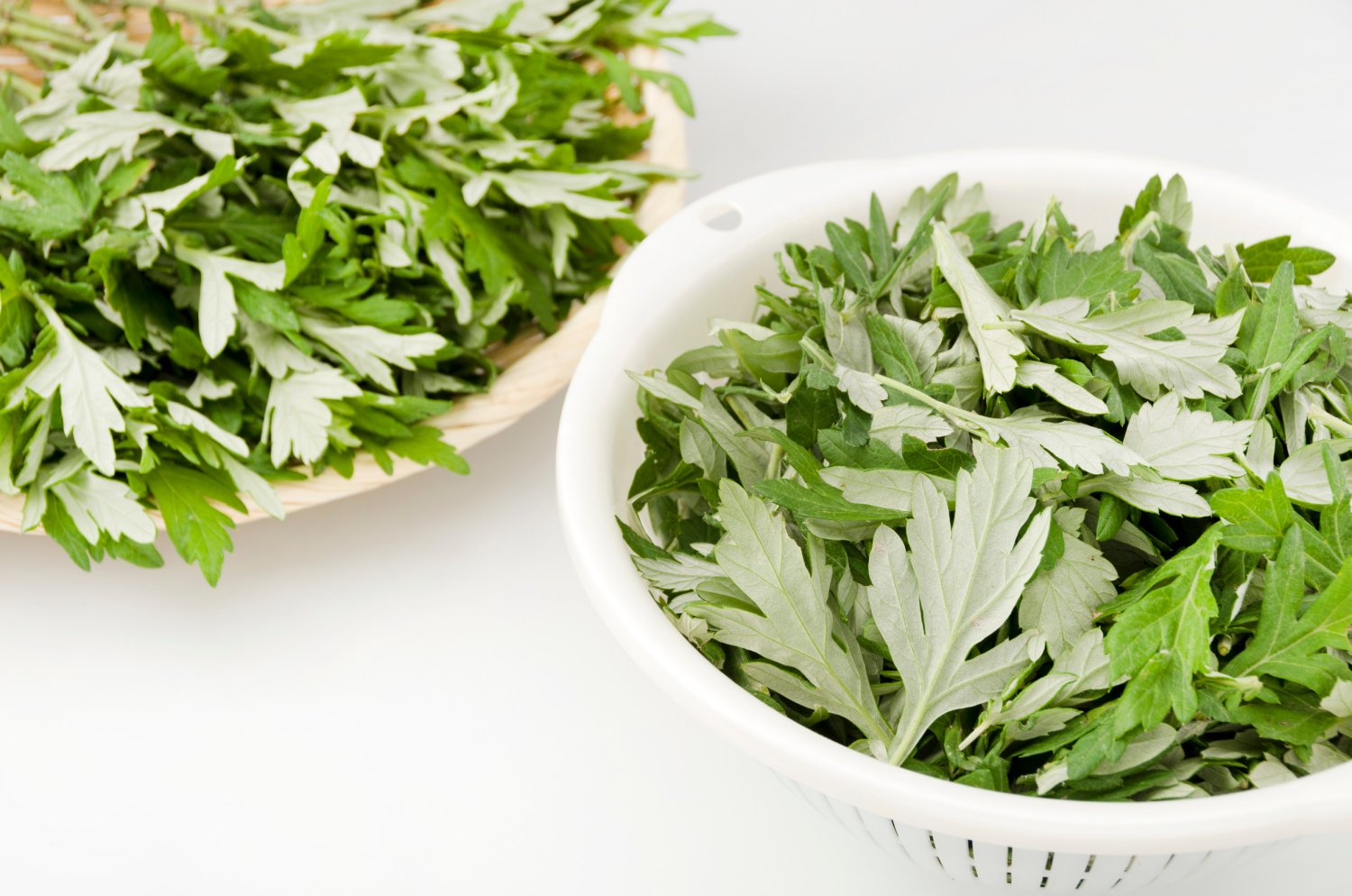
by Matt Weik, BS, CSCS, CPT, CSN
When I first stumbled upon wormwood, I honestly had zero idea what the heck it was. Then, as I started reading more about it, the more it brought me back to my college days — and not in a good way.
Wormwood is a bitter herb best known for its role in the alcoholic drink absinthe (and there is my blur of a college experience).
Known for its strong aroma and sharp flavor, wormwood has a long history in traditional medicine across Europe, Asia, and beyond. Its primary compound, thujone, may offer some benefits, but can be harmful in large amounts.
Once banned in the U.S. due to concerns over toxicity and its link to hallucinations, wormwood is now legal and available again.
In this article, we are going to dive deeper and explore the history of wormwood and its potential health benefits and uses.
Disclaimer: This article is for informational purposes only and is not meant to treat or diagnose any condition. It is recommended that you speak with your doctor before starting any exercise program, making changes to your nutrition plan, or adding any new supplements into your current regimen.
What is Wormwood?
Artemisia absinthium L., more commonly known as wormwood, is a perennial shrub that belongs to the Asteraceae plant family. It’s easily recognized by its deeply lobed, grayish-green leaves and clusters of small yellow flowers that typically bloom during the summer months, around July and August. The plant has a strong, sage-like aroma and a notably bitter taste.
In herbal medicine, the leaves and stems of wormwood are commonly used to create various remedies. While there are many species in the Artemisia genus, Artemisia absinthium L. and Artemisia annua L., also known as sweet wormwood, are the two most frequently used for medicinal purposes.
All that being said, most people aren’t grabbing wormwood in its natural form. People tend to find it at their local supplement shop in a bottle and use it in supplement form.
What Are the Compounds and Chemical Properties of Wormwood?
Wormwood is most commonly consumed as an extract or tea. Its essential oil is made from the plant’s stems and leaves, while tinctures or extracts may use the entire plant.
These forms don’t offer calories, vitamins, or minerals, but they do contain active plant compounds — most notably thujone.
Thujone exists in two forms: alpha-thujone and beta-thujone. Though similar in structure, alpha-thujone is more toxic and is the main active compound found in wormwood.
Thujone affects the brain by blocking gamma-aminobutyric acid (GABA), a neurotransmitter that normally helps calm the central nervous system. Many of us have probably used GABA in supplements that help us sleep or help us relax.
While thujone may offer some potential benefits, it should be noted that high doses are toxic and have been linked to serious side effects such as seizures and (in extreme cases) death.
What Are the Benefits of Wormwood?
Wormwood has many potential benefits. Below are some of the most prominent health benefits:
1. Treat digestive issues
Wormwood has a long history of use in traditional medicine, especially in Asia and Europe, where it was commonly used to treat digestive issues and eliminate worms and parasites.
Today, herbalists continue to use it to support digestion, especially in cases of low stomach acid or poor appetite.
A 2020 review noted that the bitter compounds in wormwood may help stimulate the production of gastric juices and bile while also improving blood flow in the digestive system. The review also suggested that wormwood may help expel parasites and fight off certain harmful microorganisms.
2. It may reduce pain
Wormwood has been used by many for its pain-relieving and anti-inflammatory effects. One of its potential uses is in managing osteoarthritis, a condition marked by joint pain and inflammation.
In a four-week study involving 90 adults with knee osteoarthritis, applying a 3% wormwood ointment three times a day helped reduce pain and improve movement. However, it did not ease joint stiffness.
It’s important to avoid applying raw wormwood directly to the skin, as its concentrated compounds can cause burns.
3. It fights parasites
Wormwood gets its name from its traditional use in treating intestinal parasites like pinworms, roundworms, and tapeworms. Its use declined after reports of severe side effects linked to drinking absinthe, a liquor made with wormwood (I’m having sickening flashbacks from college).
A 2017 study found that wormwood could kill Hymenolepis nana (H. nana), the most common tapeworm in humans, in both lab tests and mice. While it wasn’t as effective as Biltricide (praziquantel), the standard drug for such infections, the herb still showed potential. This is notable because H. nana is becoming more resistant to common treatments.
4. Brain health
A 2020 review found that wormwood may support the body’s production of glutathione, a key antioxidant, and help protect brain health. Animal studies also suggest that wormwood could have anti-depressant effects by increasing serotonin levels.
Another review pointed to its potential benefits for neurological conditions like Alzheimer’s and Parkinson’s. It is suggested that wormwood may offer neuroprotective, mood-boosting, and cognitive-enhancing effects, though more research is needed to confirm these findings in humans.
5. It may treat Crohn’s disease
Wormwood may help manage certain inflammatory conditions, including Crohn’s disease, a chronic disorder that causes inflammation in the digestive tract.
In one small study, 20 people with Crohn’s disease continued their usual treatment and added either wormwood or a placebo. Results showed that 80% of those taking wormwood reached clinical remission, compared to just 20% in the placebo group.
Another study involving 40 participants found that 65% of those who took wormwood daily experienced near-complete remission. In contrast, none of the placebo group reported meaningful improvement.
One of its active compounds, artemisinin, has been shown to reduce inflammation and may block cytokines, proteins that trigger inflammatory responses.

Leave a Reply